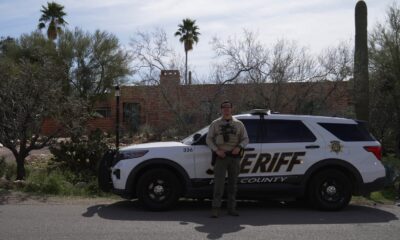Local News
Toronto commercial parking levy worth $150M a year in revenue: city staff

A report to be considered by the City’s Executive Committee next week says the city would generate upwards of $150 million a year in additional revenue through a commercial parking levy.
A levy on commercial parking within the city was one of several revenue tools city staff were asked to consider as it grapples with future budget deficits. Unlike a sales tax, a commercial parking levy would not require approval from the province.
The report recommends off-street parking levy be applied to the entire City of Toronto, which would be broken up into a two-zone rate structure – downtown and central waterfront and the rest of the city. Large shopping centres, strip malls, grocery stores, and medical and office buildings are some locations that could be targeted by the levy. Areas equivalent to approximately 10 parking spaces would be excluded in order to reduce the burden on small businesses.
The report estimates approximately 23,000 commercial properties would be subject to the parking levy and that a business with 43 parking spaces would pay between $2,970 to $5,940 depending on where in the city they are located.
According to the report, a large shopping centre in downtown Toronto – such as the Eaton Centre – could end up paying $863,000 a year while in the suburbs, a similar shopping centre could face a levy of $431,000.
POSITIVE IMPACT ON CITY PRIORITIES
“Overall, the introduction of a parking levy is expected to have a positive impact on City priorities and objectives, including reducing congestion and positively contributing to climate action by encouraging Torontonians to use transit or other means to travel,” the report states. “The parking levy will also positively contribute to the City’s multi-year budgeting strategy and long-term financial sustainability.”
The report cites similar initiatives introduced in both Montreal and Vancouver. Montreal has had a parking levy since 2010 and in their 2023 budget, the levy was expected to raise $24.1 million. Vancouver introduced a parking levy in 2006 but that model was changed in 2010 to a parking sales tax rate of 24 per cent. In 2022, the parking sales tax collected $75 million in revenue.
TTCriders and Toronto Environmental Alliance both applaud the implementation of a commercial parking levy, saying it would go a long way in funding significant improvements to the TTC while supporting the city’s climate action plan.
“With this kind of funding, the City could fund projects like the Scarborough busway every single year. Twice,” said TTCriders Board member Krissan Veerasingam. “We want the Mayor and Councillors to move ahead quickly to bring in this funding for transit.”
IMPACT TO TORONTO’S COMPETITIVENESS
The Toronto Region Board of Trade has previously come out against a commercial parking levy, noting the cost would be passed on to tenants of the building and then onto customers and employees. As well, they say it would make it harder to attract business to the city.
The city staff report does echo the Board of Trade’s concerns, noting that the introduction of a parking levy could result in an increased cost for property owners, which would impact their businesses.
“The increased costs of the parking levy may be passed on by owners and businesses to the consumer, either directly, on the price of parking, or indirectly, through increasing costs of other goods and services offered,” the report says. “This, in turn, may cause consumers to shift their shopping or business activities to areas outside of Toronto, and businesses may look to move their operations to a nearby municipality where the cost to operate may be lower, which may impact Toronto’s competitiveness compared to neighbouring municipalities.”
The report says there would be a one-time cost of up to $12.2 million to develop and implement the levy and an annual cost of $1.3 million to administer the program.












